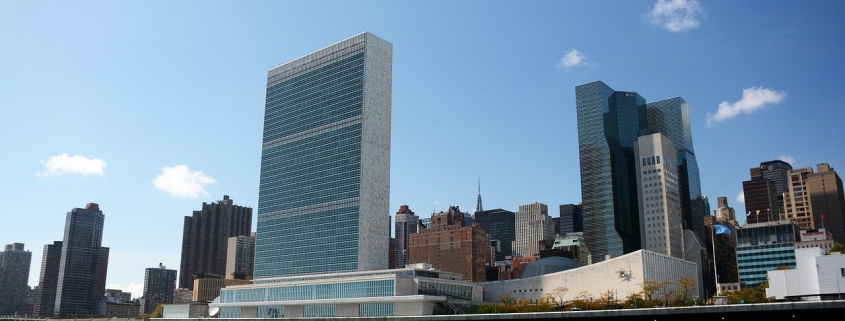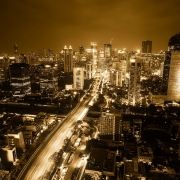Why is the UN Security Council important?
Topic of Study [For H1/H2 History Students]:
Paper 1: Safeguarding International Peace and Security
Section B: Essay Writing
Theme III Chapter 2: Political Effectiveness of the UN in maintaining international peace and security
Historical Context: The “Four Policemen”
On 26 June 1945, representatives from fifty countries signed the Charter of the United Nations. Henceforth, the United Nations was established as an international organisation that focuses on the maintenance of international peace and security.
US President Franklin D. Roosevelt envisioned a post-war order in which the “Four Policemen” – represented by the USA, UK, USSR and China – should assume the primary responsibility to provide security.
In 1942, Roosevelt assured Sumner Welles that when “the moment was ripe”, he would push for a new world organization. His conception of it at the time was illustrated in his “Four Policemen” proposal, which emphasized the use of military powers by the “Big Four” of the wartime Grand Alliance, who, he was convinced, need to cooperate to ensure postwar peace.
… In FDR’s early view of the Soviet Union, Great Britain, China and the United States would have regional responsibilities for maintaining peace and would act together to enforce world stability, even forcibly carrying out the disarmament of smaller powers.
An excerpt from “The New United Nations: International Organization in the Twenty-First Century” by John Allphin Moore, Jr. and Jerry Pubantz.
Enforcement Powers: Chapter VI and Chapter VII
The Security Council was empowered to invoke Chapter VI or Chapter VII. Ideally, the use of force was to be considered only as a last resort.
For Chapter VI, the Security Council can investigate a dispute and then make recommendations on its settlement, as mentioned in Articles 34 and 36 respectively.
For Chapter VII, the Security Council identifies situations in which there may be a “breach of peace” and authorise the use of measures to manage conflicts. Examples of such measures include the imposition of sanctions (Articles 41-42) and the deployment of armed forces (Articles 44-47).
The Veto
One of the most controversial functions of the Security Council relates to the veto. As described in Article 27(3) of the Charter: “Decisions of the Security Council on all other matters shall be made by an affirmative vote of nine members including the concurring votes of the permanent members“. In other words, should any of the permanent members cast a negative vote, a resolution of the Security Council is blocked.
Although the veto can result in political paralysis, it is created to safeguard the interests of the permanent members, thereby ensuring their continued participation in the Security Council. Therefore, some member nations interpreted the veto power as a necessary evil.
Exacerbated by the polarized climate of the Cold War, the use of veto soon began to create deadlock within the Council. By August 1, 1950, “the Soviet Union had all but [paralyzed] the Security Council by vetoing forty-five draft resolutions since the creation of the UN.” The fear was that the UN could lapse into the dysfunctionality that had stymied the League of Nations. If the Security could not utilize its Chapter VII enforcement powers due to veto use, it was feared the UN could suffer the same fate as the League of Nations, unable to prevent world war.
An excerpt from “Existing Legal Limits to Security Council Veto Power in the Face of Atrocity Crimes” by Jennifer Trahan.
What can we learn from this article?
Consider the following question:
– Assess the political effectiveness of the Security Council from 1945 to 1991.
Join our JC History Tuition and learn to consolidate your content knowledge for the GCE A Level History topics like the United Nations. We provide summary notes, essay outlines and source based case study practices to refine your thinking and writing skills. Through an instructive and exam-driven approach, you will be ready to tackle the challenges of the examinations.
The H2 and H1 History Tuition feature online discussion and writing practices to enhance your knowledge application skills. Get useful study notes and clarify your doubts on the subject with the tutor. You can also follow our Telegram Channel to get useful updates.
We have other JC tuition classes, such as JC Math Tuition and JC Chemistry Tuition. For Secondary Tuition, we provide Secondary English Tuition, Secondary Math tuition, Secondary Chemistry Tuition, Social Studies Tuition, Geography, History Tuition and Secondary Economics Tuition. For Primary Tuition, we have Primary English, Math and Science Tuition. Call 9658 5789 to find out more.











